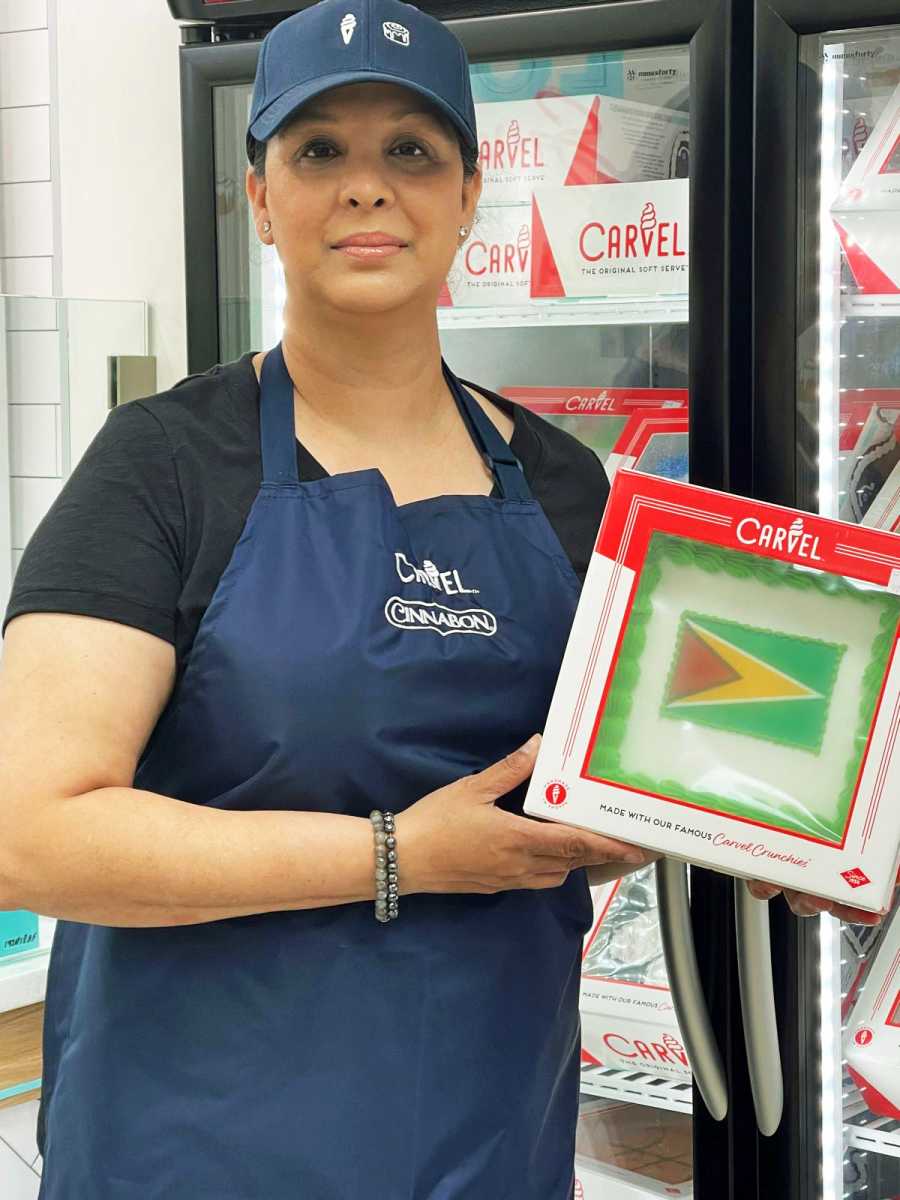With the holiday season in full swing, people are spending their hard-earned money on holiday shopping and Ridgewood Savings Bank (RSB) is offering tips to protect your bank account and avoid becoming a victim of fraud.
Fraud and scams target consumer bank accounts daily, but the November and December holiday months see the highest fraudulent activity as more people use their bank accounts and credit card accounts, according to Ridgewood Savings Bank.
“I think when some people hear about the fraud cases that are happening, they may quickly say, ‘Who in the world would fall for that?’ And you’d be surprised,” said Mark Sanchioni, Chief Bank Officer at Ridgewood Savings Bank. “The caliber of people that do fall for that are very much highly educated professionals, etc., who, when presented with a strong sense of urgency by somebody who’s done a fairly good job of misrepresenting who they are, can suddenly get you to do something you wouldn’t normally do.”
According to Ridgewood, there are 10 different kinds of fraud to watch out for.
Grandparent scams
A grandparent scam is when your grandson/granddaughter confesses to being in trouble and say they need money to get out of the predicament they are in. Fraudsters will request you to send a payment through services like Venmo and Zelle, gift card codes or some other form of payment.
If you are in this situation, hang up and call your grandchild directly, according to Ridgewood. Don’t click any links and emails you don’t trust. If the frauds call back, block their number. If you cannot check their number, don’t answer when you see their number on the caller ID. If you don’t have caller ID and you happen to answer, tell them you know it’s a scam and you’ve given their number to the police.
Romance/sweetheart scam
Romance/sweetheart fraudsters will take advantage of lonely people on dating sites, according to Ridgewood. They will try to gain someone’s trust to get them to send money. They usually live far away but can visit you in person if you send them money.
They will continually ask for money for other business ventures to help you build a life together. They tell you not to tell anybody about this, including your bank.
While on dating sites, avoid talking about money, bills and finances. If those topics are brought up, state that you’d rather not talk about them. If asked for money, state that you don’t have any money to send. Keep saying it. Chances are a fraudster will lose romantic interest. If they are persistent, block their profile on the dating site, email address and phone number.
Work-from-home scams
In this scheme, fraudsters will pose as an employer on every job board and offer work with the flexibility to work from home with above-average pay.
They may charge in advance for training or for setting up. They may send a check in the mail to buy the laptop and instruct you to send the money back through services like Venmo and Zelle by leaving cash in a locker, calling them back with gift card codes or using some other odd form of payment, according to Ridgewood.
If it sounds too good to be true, it probably is. Research the company on your own, and don’t rely on the information they posted to the job site; any job requiring you to pay them in advance should raise a red flag.
The check they send you will likely be fraudulent. Even when your bank makes it available, it doesn’t mean it was a sound check.
Imposter scam
These fraudsters will pose as IRS agents, law enforcement or debt collectors. They will say you have outstanding taxes, debts, warrants or judgments and will be arrested if you don’t pay today.
If you are in this situation, hang up the call or delete the email. Don’t click on any links in emails you don’t trust. If the fraudsters call back, block their number. If you cannot stop their number, don’t answer when you see their number on caller ID. If you don’t have caller ID and you happen to answer, tell them you know it’s a scam and you’ve given their number to the police.
Lottery/prize scams
According to Ridgewood, these fraudsters will pose as lottery officials at a company you probably never even heard or a lottery agency’s name that sounds very similar to something well-known, like Publishers’ Clearinghouse. They tell you that in order to send you your prize money, you have to pre-pay the taxes.
If you are caught in this situation, you must hang up the call or delete the email. Don’t click on any links in emails you don’t trust. If the fraudsters call back, block their number. If you cannot block their number, don’t answer when you see their number on caller ID.
Online banking takeover scams
These fraudsters will pose as the security team from your bank or another company like Microsoft, Facebook, etc. They tell you they uncovered a virus on your computer, and it’s affecting your bank accounts. They will try to sign into your online banking with you as you share user names, passwords, account numbers, etc. They transfer money from one account to another to trick you into thinking you were sent money in error.
In this predicament, Ridgewood suggests you hang up the call or delete the email. Don’t click on any links in emails you don’t trust.
If the fraudsters call back, block their number. If you cannot stop their number, don’t answer when you see their number on caller ID. If you don’t have caller ID and you happen to answer, tell them you know it’s a scam and you’ve given their number to the police.
Cashier’s check scams
According to Ridgewood, these fraudsters will pose as someone interested in buying an item you are selling online.
They will send you a check for more than the agreed to price. They ask you to send them back the overpayment, taking advantage of your feeling that a cashier’s check is good as gold (it isn’t).
If someone gives you an overpayment for a purchase of any kind, beware. Remember, any check (even a cashier’s check) you deposit will be made available to you before clearing it. Your bank may come back to you weeks later looking for the money if the check is fraudulent.
Money transfer/mobile payments fraud
A money transfer fraudster will set up Venmo, Zelle and PayPal accounts with similar naming conventions to legitimate payees to benefit from someone choosing the wrong payee in a rushed moment of confusion, according to RSB. Once it’s sent, there is little hope of reversal.
These fraudsters use these person-to-person (P2P) payment networks to commit all types of fraud because they can be very anonymous and the transactions are nearly always irreversible, according to Ridgewood.
If you encounter this situation, ask yourself if you are sending money for reasons that resemble the fraud types listed above. If yes, stop.
If you feel you are sending money to a legitimate payee, choose the payee’s account very carefully. Consider sending a test transaction for a minimal amount first, like a dollar. Once your payee confirms receipt, you can comfortably send the total amount.
Debit and credit card fraud
Fraudsters use creative ways to get a hold of your card number. They will place skimming devices at places like ATMs and gas pumps to read the card number when you swipe it. They use their cellphones to take pictures of your card while you stand in line at the store, or they will call pretending to be your bank, saying someone is trying to use your card, then ask you to confirm your card number, expiration and security code.
To combat this, Ridgewood suggests protecting your card at all times and to avoid displaying it openly. Consider using the tap-to-pay feature at point-of-sale machines to prevent needing to swipe the magnetic strip. Consider using your mobile phone’s digital wallet feature to tap-to-pay, too.
Your bank has your information. If they call you, they won’t need you to verify anything.
Set up alerts on your bank accounts. Most of them will text or email you when a transaction of any amount is attempted.
Check fraud
According to Ridgewood, these fraudsters will use creative ways to get a hold of your checking account number. They will steal your outgoing bill payments when they are left inside your mailbox for the postman to pick up, or they will get your outgoing bill payments out of the street corner mailboxes.
This fraudster will give unsuspecting people checks to cash for them, stating they don’t have a bank account. They will share some portion of the check as payment. You are left accountable to your bank when the check is returned as fraudulent.
To combat this, you must protect your checkbook and always write checks. Only give a written check to someone you trust. Even a check with a small amount of money can be used to commit a large fraud.
Consider using your bank’s online bill payment service to mail payments on your behalf. Never offer to cash a check for anyone you don’t trust or wouldn’t know how to reach if the check is returned.



































